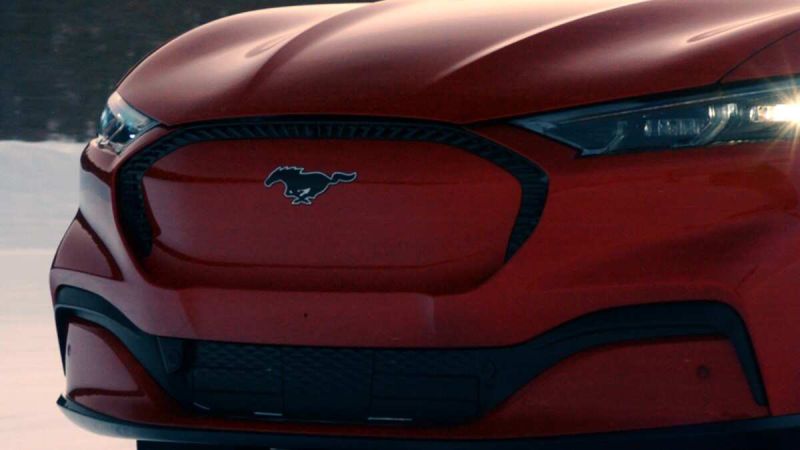A few years ago, when auto industry leaders were questioned about their commitment to electric vehicles (EV), they inevitably answered that the biggest drawback to the widespread adoption of a significant fleet of EVs was cost.
The Problems Causing Higher Prices
And they were right. EVs cost too much, thanks, at that time, to supply chain issues that not only drove up the cost of the raw materials that made EVs desirable – lithium for batteries, for example, as well as the semiconductors that were needed to make them. These issues have continued.
Indeed, said Businessinsider.com, the car industry’s mad dash to make EVs more affordable has worked against them. The result has been that the price of EVs has gone up, “at least in the short term,” the business site noted.
The industry is desperateto make electrics that are cheaper for buyers. But, while the industry has other issues around “range and charging availability,” says Businessinsider.com, the biggest barriers “to mass EV adoption remains ”price.
EVs Are Still Expensive
At the end of November 2022, according to Kelley Blue Book (KBB), the average cost of a new EV was $65,041while gas cars averaged $48,681 that month.
Automakers told Businessinsider.com they are trying their best to make cheaper EVs. Chevy, for example, says its 2023 Equinox SUV EV should start at about $30,000. say they are doing all they can to introduce cheaper EVs. For instance, the Chevrolet Equinox SUV EV, to launch this year, should start at around $30,000. The automaker’s Bolt currently costs about the same. This price point seems to be the Holy Grail of EV pricing. Even Tesla has been trying to make an EV in this price range, but the automaker said earlier this year that it had dropped out of that pricing competition. Ford's electric SUV, the Mustang Mach-E costs between $48,000 and $53,000.
So, why are electric vehicle prices so high? For starters, said Businessinsider.com, high prices stem “in part, from the domination of luxury vehicles in the market. For example, Ford's F-150 Lightning electric pickup starts at nearly $56,000, while the GMC Hummer EV costs more than $100,000. Ford has raised the price of the Lightning twice in the last six months. Meantime, Rivian “tacked a $73,000 price onto its R1T truck, while “Lucid raised the price of the cheapest variant of its Air sedan to $87,400,” Businessinsider.com notes.
Right Now There Is A Supply Problem
There’s an even more “stubborn problem” facing the car industry -- battery materials supply.
With the auto industry poised to pour more than $515 billion “into all-electric lineups over the next several years,” – GM and BMW plan to have “least 50 percent of their new vehicle sales to be at least 50 percent of their new-vehicle sales by 2030,” Businessinsider notes, while Ford has a global target of 40 percent of its sales to be EV 2030. Meantime, GM “wants to eliminate all emissions-producing cars by 2035.” And “Mercedes is only making newly launched cars electric starting in 2025. Scaling up will inherently make electric cars less expensive over time,” notes Businessinsider.com
But in the short term, “the surge in demand was enough to reverse a decade-long decline in battery prices, according to recent analysis BloombergNEF. Businessinsider.com noted that this year, prices for crucial lithium-ion batteries rose about 7 percent.
Businessinsider.com notes that the issue is “simple: The more EVs carmakers plan to make, the more they need raw materials for their batteries. The less available supply, the higher the prices can go.” It is simple supply and demand. “The demand has ultimately sparked a frenzy that continues to make the battery the most costly part of an EV,” Businessinsider notes.
Cost Of Lithium Has Skyrocketed
Just look at the price, and you can see – that the cost of lithium has jumped 500 percent this year. Indeed, “that metal could be the biggest roadblock to cheaper EVs,” Businesssinsider.com notes.
"You're going to have more and more people trying to source larger quantities of the supply of lithium to make sure that they have whatever they need to operate for the next fiscal year," Craig Dillard, partner at firm Foley & Lardner, told Businessinsider in the fall. "They need to be thinking about where the material is sourced," Dillard said, and "how much the price of lithium impacts not only their profitability but also pricing in general for their products."
Some signals suggest that might not be the case for long. For instance, “higher adoption of lower-cost battery mixes plays a role alongside recycling, as well as easing lithium pricing,” which is the “result of more extraction and refining coming online.” Interestingly, although it is expected that the pricing of lithium will be going up eventually, the added mining and supply will cause prices to fall.
Ford Motor Photo
Marc Stern has been an automotive writer since 1971 when an otherwise normal news editor said, "You're our new car editor," and dumped about 27 pounds of auto stuff on my desk. I was in heaven as I have been a gearhead from my early days. As a teen, I spent the usual number of misspent hours hanging out at gas stations (a big thing in my youth) and working on cars. From there on, it was a straight line to my first column for the paper, "You Auto Know," an enterprise I handled faithfully for 32 years. Not many people know that I also handled computer documentation for a good part of my earnings while writing YAN. My best writing, though, was always in cars. My work has appeared in Popular Mechanics, Mechanix Illustrated, AutoWeek, SuperStock, Trailer Life, Old Cars Weekly, Special Interest Autos, etc. You can follow me on: Twitter or Facebook.
Set as google preferred source










